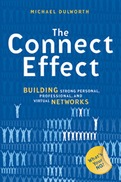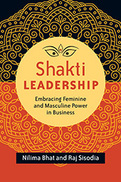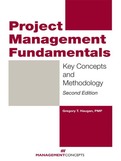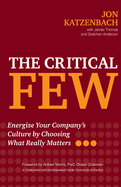2008
•Offers a systematic approach to developing your networking skills—including an “NQ test” to help you quantify your networking ability
•Features tools and techniques specific to each type of network, as well as advice from leading executives, researchers, and thought leaders
•Copublished with ASTD, the leading association for human resource development professionals
2007
- Offers a systematic approach to overcoming one of many people's greatest fears: asking for help
- Explores why we are so reluctant to ask for help as well as precisely how to ask for it
- Illustrated with personal stories and anecdotes from the author's coaching practice
2015

Calling Cards are an interactive tool built to accompany the books The Power of Purpose and Work Reimagined. Using the cards exposes a reader to many different skills, asking him or her to reflect on their own strengths and gifts. The reader then chooses several that reflect their greatest assets. The reader is finally taken through an exercise that uses the results to help identify a new life calling. Additionally, the tool can be played by a friend or family member to offer multiple perspectives to help the reader gain deeper insight into his or her own gifts.
There are 52 cards in the Call Card deck, covering gifts in six major environments: Realistic (data), Structured (tasks), Enterprising (people), Social (feelings), Artistic (ideas), and Investigative (things). Examples of natural gifts on each card are Writing Things, Seeing Possibilities, Fixing Things, Creating Dialogue, Adding Humor, and Getting to the Heart of Matters.
2016
Too many people, men and women alike, have bought into a notion of leadership that exclusively emphasizes traditionally “masculine” qualities: hierarchical, militaristic, win-at-all-costs. The result has been corruption, environmental degradation, social breakdown, stress, depression, and a host of other serious problems. Nilima Bhat and Raj Sisodia show us a more balanced way, an archetype of leadership that is generative, cooperative, creative, inclusive, and empathetic. While these are traditionally regarded as “feminine” qualities, we all have them. In the Indian yogic tradition they're symbolized by Shakti, the source that powers all life.
Through exercises and inspirational examples, Bhat and Sisodia show how to access this infinite energy and lead with your whole self. Male or female, leaders who understand and practice Shakti Leadership act from a consciousness of life-giving caring, creativity, and sustainability to achieve self-mastery internally and be of selfless service to the world.
To achieve success in any endeavor, you need to understand the fundamental aspects of that endeavor. To achieve success in project management, you should start with Project Management Fundamentals: Key Concepts and Methodology, Second Edition.
This completely revised edition offers new project managers a solid foundation in the basics of the discipline. Using a step-by-step approach and conventional project management (PM) terminology, Project Management Fundamentals is a commonsense guide that focuses on how essential PM methods, tools, and techniques can be put into practice immediately.
New material in this second edition includes:
• A thorough discussion of agile project management and its use in real-life situations
• Detailed explanations of the unique factors involved in managing service projects
• An enhanced appendix on management maturity models
• A new appendix on project communications and social networking
• Expanded coverage of the triple constraints in PM, going beyond scope, schedule, and cost to include quality, resources, and risks
As a refresher for the experienced project manager or as a comprehensive introductory guide for the new practitioner, Project Management Fundamentals: Key Concepts and Methodology, Second Edition, is the go-to resource that delivers.
2019
The fate of any change effort depends on whether and how leaders engage their culture: the self-sustaining patterns of behaving, feeling, thinking, and believing that determine how things are done in an organization. Culture is implicit rather than explicit, emotional rather than rational--that's what makes it so hard to work with, but that's also what makes it so powerful.
For the first time, this book lays out the Katzenbach Center's proven methodology for identifying your culture's four most critical elements: traits, characteristics that are at the heart of people's emotional connection to what they do; keystone behaviors, actions that would lead your company to succeed if they were replicated at a greater scale; authentic informal leaders, people who have a high degree of "emotional intuition" or social connectedness; and metrics, integrated, thoughtful measures to track progress, encourage the self-reinforcing cycle of lasting change and link to business performance.
By leveraging these critical few elements, you can tap into a source of catalytic change within your organization. People will make an emotional, not just a rational, commitment to new initiatives. You will elicit enthusiasm and creativity and build the kind of powerful company that people recognize for its innate value and effectiveness.

















